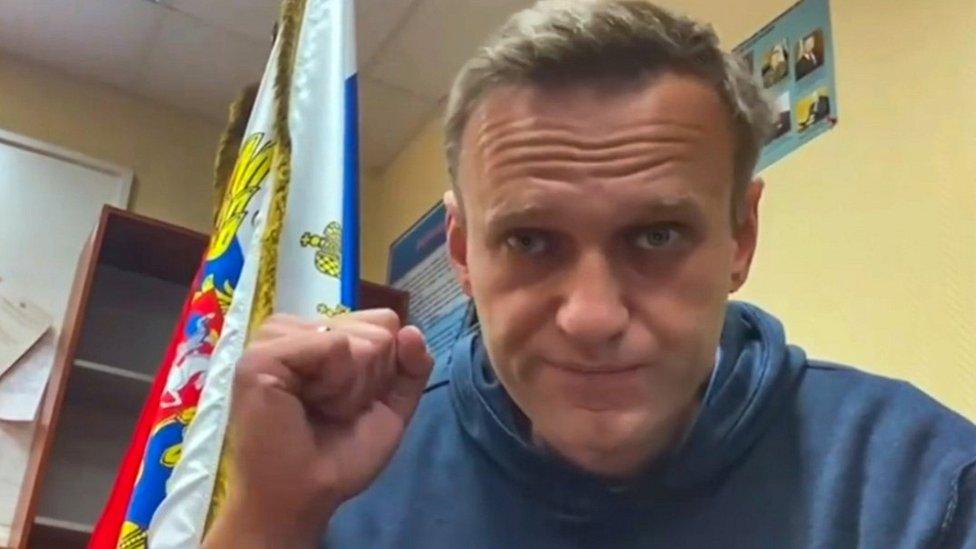Navalny poisoning: Kremlin critic recalls near-death Novichok torment
- Published
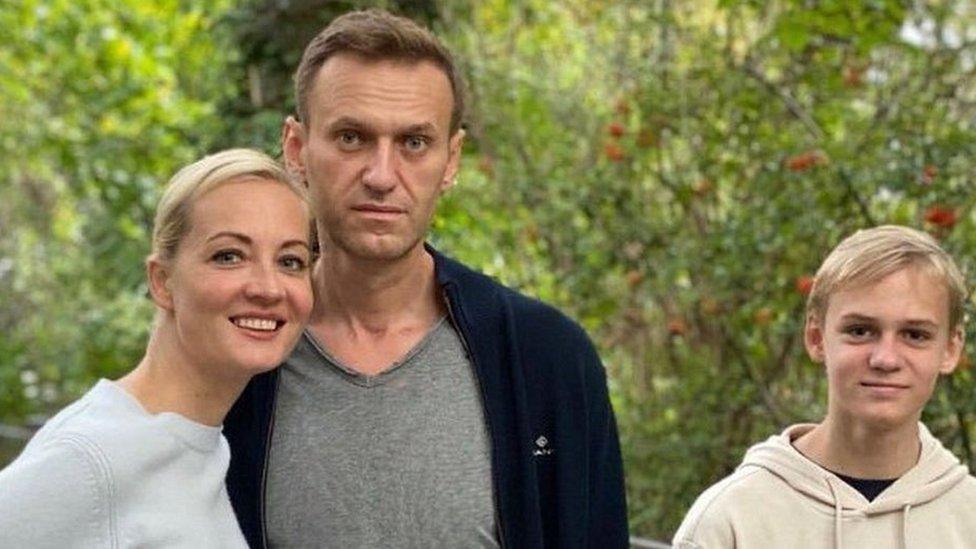
Alexei Navalny is now out of hospital - shown here with his wife Yulia and son Zakhar in Berlin
The poisoned Russian opposition leader Alexei Navalny says recovering from nerve agent is a long haul, with sleepless nights and clumsy movements.
But he told BBC Russian that "I'm doing much, much better" and insisted that eventually he would go back to Russia.
The BBC met him at a tightly-guarded Berlin hotel, after he spent 32 days in Berlin's Charité Hospital, mostly in intensive care.
He felt cold shivers initially and no pain, "but it felt like the end".
"It doesn't hurt at all, it's not like a panic attack or some sort of upset. At the beginning you know something is wrong, and then really your only thought is: that's it, I'm going to die."
He collapsed on a flight from Tomsk in Siberia to Moscow on 20 August, and only survived because the plane made an emergency landing in Omsk, where he was rushed to intensive care.
Later, after top-level negotiations with the Russian authorities, he was airlifted to Berlin and treated there while being kept in a medically induced coma.
Novichok confirmed
The inter-governmental Organisation for the Prohibition of Chemical Weapons (OPCW) has confirmed that Mr Navalny, 44, was poisoned with a Novichok-type nerve agent.
In a statement, it pointed to the similarities between traces found in his urine and blood samples and chemical weapons on the banned list.
Germany says French and Swedish laboratories also agreed with its scientists that Mr Navalny was "beyond doubt" poisoned with a nerve agent.
Novichok agents, developed by Soviet scientists during the Cold War, are extremely toxic - a tiny amount can kill.
Laura Foster explains how the Novichok nerve agent works
Last week, in his first video interview since leaving hospital in late September, Mr Navalny said he believed the Russian authorities poisoned him to remove the threat he posed to their dominance in next year's parliamentary elections.
The Russian government has denied any involvement in his poisoning. Russian doctors who treated Mr Navalny said they found no poison.
"I assert that [President Vladimir] Putin is behind this act, I don't see any other explanation," he told German news magazine Der Spiegel last week.
He fell ill after campaigning in Siberia to get fellow anti-corruption campaigners elected to local councils.
He is one of Russia's best-known critics of President Putin, with millions of followers on social media, where he exposes official corruption and denounces the pro-Putin United Russia party as "thieves".
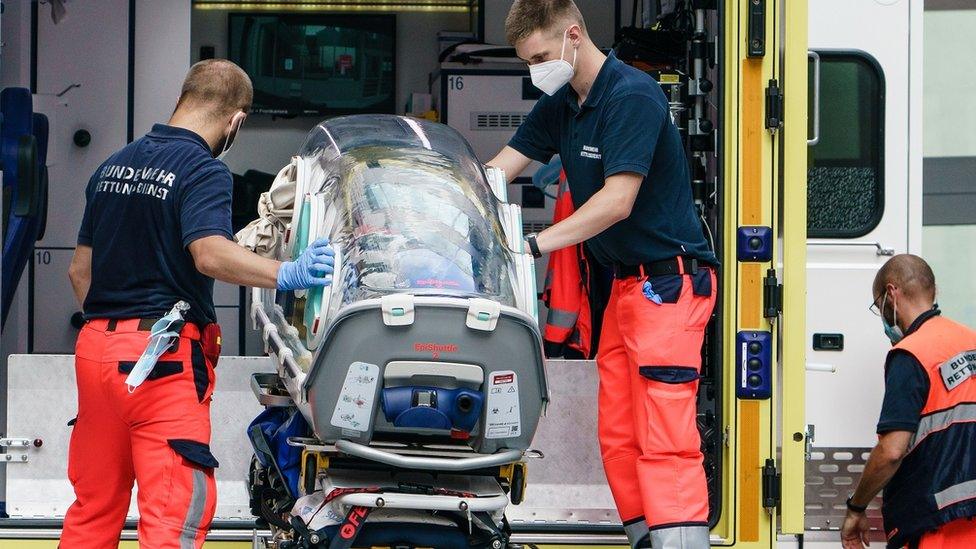
Mr Navalny was airlifted to Berlin two days after he fell into a coma on 20 August
He refuses to accept a life of exile, and told the BBC: "They've been striving for a long time to force me out of the country".
"I don't know how events will develop, I'm not going to take risks. I have my cause, I have my country." He said there was no point thinking about events he had no power to control.
Hallucinations
He told the BBC that on the plane, as the poison took effect, he felt unable to focus on anything, though people and objects around him were not swaying or blurred in the way that alcohol affects the brain.
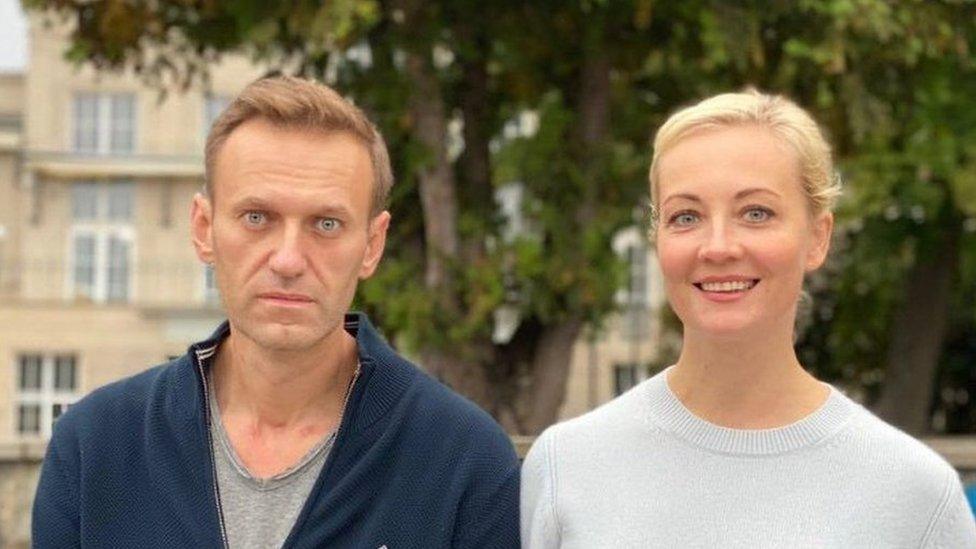
For weeks Yulia was unsure whether her husband would pull through
Much later in hospital "there were several phases of reawakening, and that was the most hellish period".
"For a long time I had hallucinations," he said. He believed his wife Yulia, doctors and his fellow activist Leonid Volkov were telling him he had been in an accident, he had lost his legs, "the surgeon was going to give me new legs and a new spine".
He was convinced that this was "totally real" and he was "tormented by hallucinations at night".
"My main problem is sleeping. I've lost the sleeping habit, and I find it difficult without sleeping pills. I never used to have that problem.
"I also have tremors in my hands, they're unpredictable." He said he was having frequent medical checks, including cognitive tests, and "physically I'm recovering quite quickly".
"Sometimes I feel sort of spaced out, I go for walks twice daily, and can walk for quite some time. For me the hardest part is getting in and out of the car."
He expressed relief that he was not in any pain, but frustration that even a simple thing like throwing a little ball "feels like shot-putting" in athletics.
- Published4 September 2020
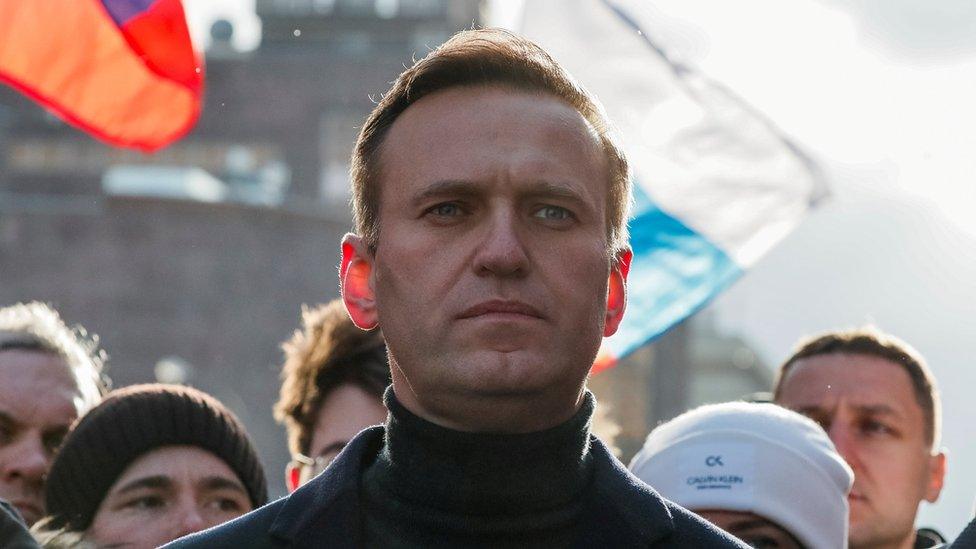
- Published26 August 2020
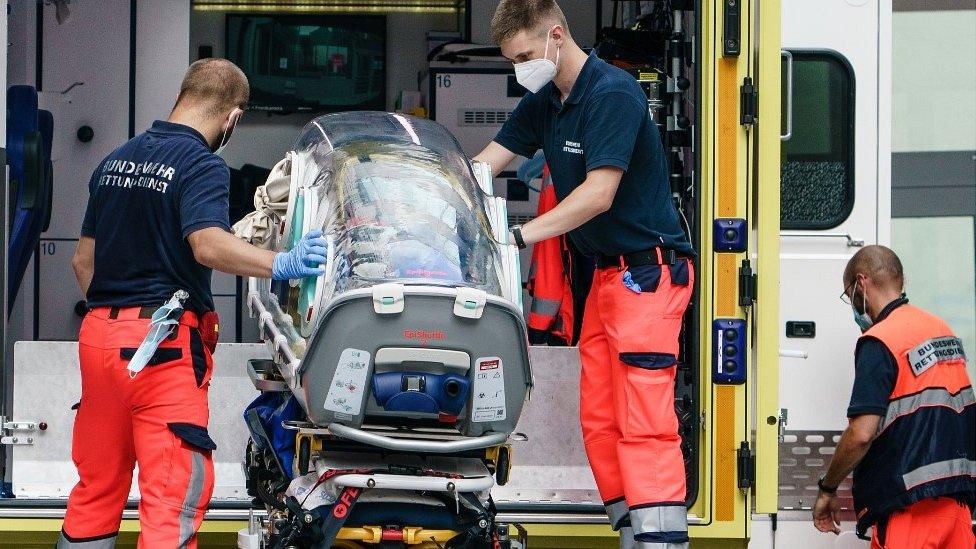
- Published24 September 2020
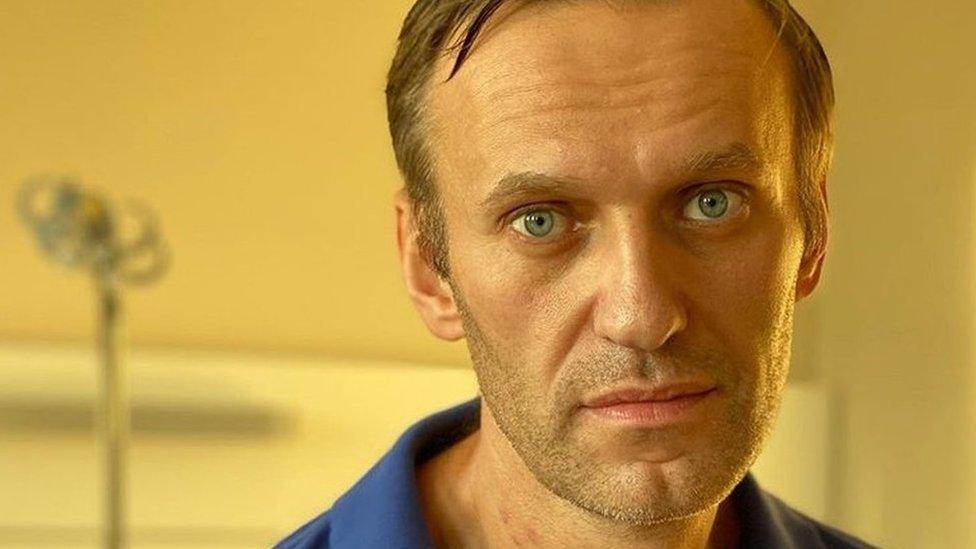
- Published16 February 2024
